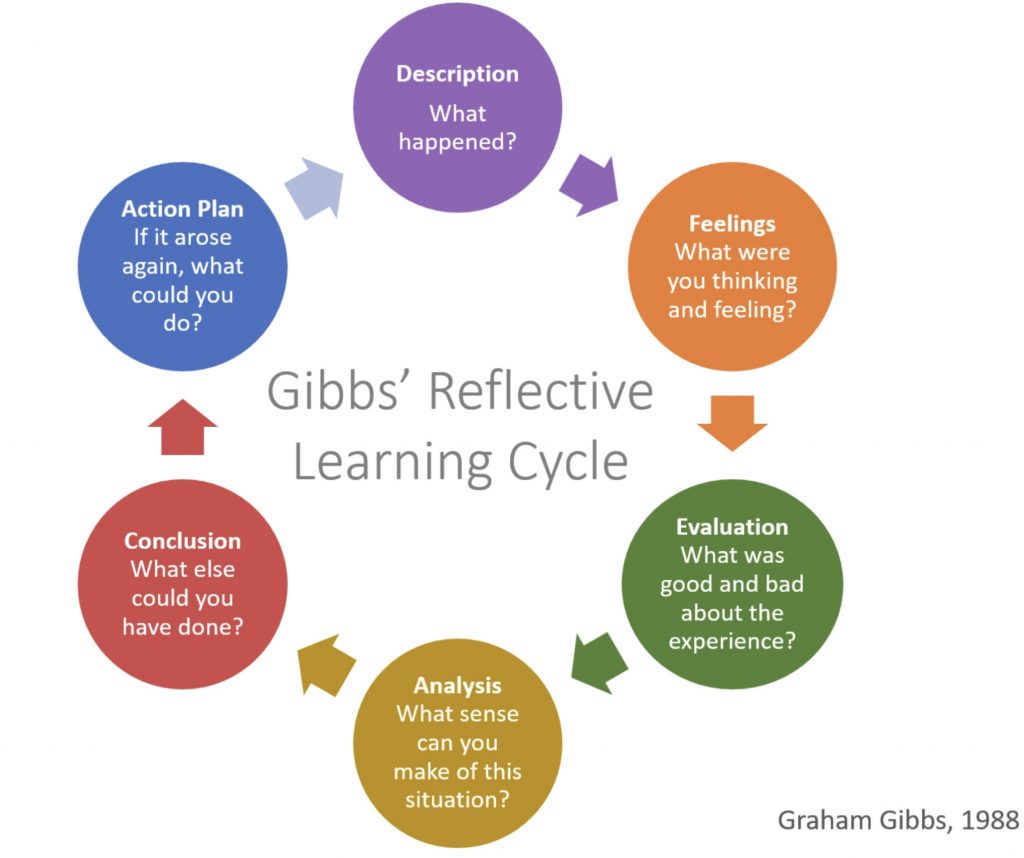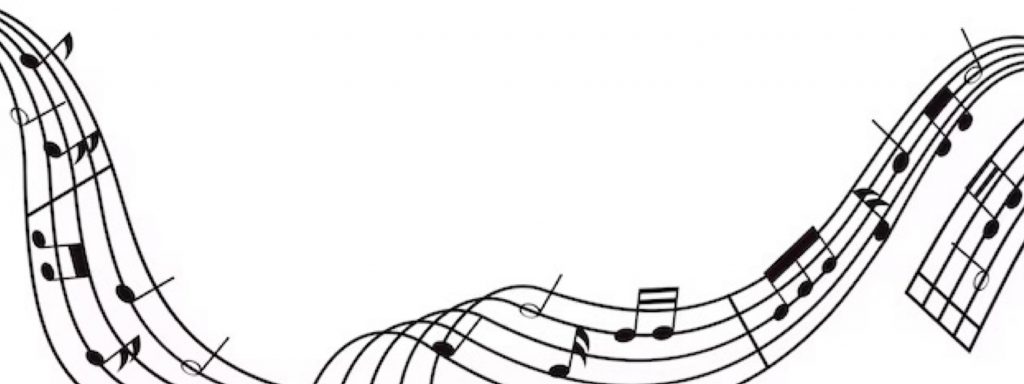Palms sweating? Leg bouncing? Is that really what you’re wearing today?
“The secret to getting ahead is getting started.”- Mark Twain. Welcome back to my blog for yet another insightful story as a third year university student. Not long ago, I braved the early train for a 9am scheduled start. What for you ask? Just a mock interview of course! Behind the sarcasm, this was one of the most personally penetrating processes as I unlock my brain’s potential during this practice pressurised situation! I’ll be reflecting on this experience, featuring the before, during, after, and behind the scenes thoughts using the Gibbs’ Reflective Cycle (1988). This allows me evaluate myself in preparation for the real thing: my future PGCE interview.

Recruitment
Welcome to drafting day! Stop smiling; you don’t know what’s ahead. Due to some unforeseen weather, all communications about the interview preparation were moved online. The first step in the journey was to learn about the tips and tricks for the interview process ahead. We learnt about preparations, types of questions, and finished with an insightful quiz about best possible responses. As soon as the mock interviews were introduced, I knew straight away I was going for the big one: a Post Primary Music PGCE interview. At the end of the session, a group chat was made for our student panel with potential jobs being fired into the chat for everyone to read. At this point I was feeling two things: unprepared and scared! I knew this interview was in front of peers, but I wanted to take the opportunity seriously to better prepare myself for the future. I was definitely thankful for clear advice and motivation from the lecturers to try my hardest, but now also aware it wasn’t just my own interview I needed to prepare for; I needed to write out potential questions for the others in my selected group. By my calculations, there would be at least three or four other sets of questions to create. Looking back, I could have asked for more specific details from the other interviewees, some of which selected interviews for jobs I was not well educated in. This would have helped me better shape the questions I would prepare rather than settle for the generalised approach. In the future, it would be beneficial to research as many career pathways from this degree as possible- you never know what doors may open!
Strategy
With the key details fresh in my head, it was time to begin the training process. There were a few key ideas prompted from the online lecture to start with, but the newest and most interesting terminology came in the form of STAR. To clarify readers, not A star! STAR was an acronym announced about advancing your approach to competency based questions. The “Situation, Task, Action and Result” (DDI, 1970) method helped me prepare strong examples to support my experience. I drafted some other ‘basic teacher questions’ and I was set to go- all except my chosen outfit! I was feeling a little more prepared seeing my life’s experience typed out on a document before me and also slightly nonchalant. Hearing about the lack in progress of my friend’s preparations gave me a silent confidence for the upcoming date. This feigned confidence wasn’t fuelled by my own groundwork so really I was delaying the inevitable realisation I was unprepared, but more on that later. What was good however was the wide range of questions I could find that would suit both my interview slot and others. In hindsight, I do see how my misdirected energy going into reassuring others the game day will be easy and straightforward actually became an excuse for me to not spend more time with my prepared answers. I won’t be making that mistake again! Moving forward, with my actual interview ahead, from the release date to the day of I will be concerning my time with my own work and not be distracted by others’ progress. One step forward, eyes straight forward, march in line.
Battlefield
We are down in troops; I repeat we are down in troops! The morning arrived and only one other drafted solider in my division arrived! Clearly, the prospect of the day ahead scared them away. However, one brave companion and myself decided to take it in our stride and fate would have it that we were preparing for the same interview! This immediate companionship was the cornerstone we both needed during the process. The unpredictable downsizing of numbers left us no other choice but to merge with another squadron. However, we had no questions prepared for their preferred interviews. This limited preparation time was shortened again by my draft to be the first interviewee, meaning I had to relocate for five minutes as my peers pulled together their questions to interview me with. Nerves only enabled me to chat to the other initially selected victims rather than mentally review my thoughts- a crucial mistake. “The interview contains all the elements that make social situations threatening, including being the focus of others’ attention” (Powell et al., 2020). Then my time came to return to my group for their questions and my answers began to form. Initially, I felt let down by the team. Secondly, I felt sudden the wave of anxiety, accompanied by a heightened heart rate! And finally just plain relief.
Overall, I would say I enjoyed the actual panel time as my peers were great listeners and very encouraging! They maintained great eye contact with me throughout which forced me to practice my professionalism. With their first question, asking why I wanted to be a teacher, I found I fumbled more than the second question which asked for my experience working with young people. The first question I personally find to be quite vague and wasn’t a question I had planned to ask other students who were applying for the same PGCE interview as me. However, my questions to the ‘newcomers’ to our group were also vague due to my lack of preparation time to try understand the demands of their potential jobs and accompanying interviews. The war ground of interviews turned out to be a very insightful day. I’m sure you can agree that I need to adapt more control over my own anxieties in order to really show my personality and skills all at once. Everyone in our mixed group had to improvise, but learning to problem solve quickly to find out the valuable information needed in that situation would have been a beneficial skill to enhance our questions for the other professions. Let this be a warning to you: everyone should know their capabilities under pressure. Yes, even you! I found out the hard way that three individuals constantly making eye contact with me was enough to scare away my improvisational skills. In future, I will take any interview practice available to really put myself under the magnifying glass and defeat any hidden weak spots.
Recuperation
Looking back, and after receiving feedback, I can now give you my final evaluations of the day. My peers all agreed I came across confident in the moment which was great to hear! Although I can’t hide the fact each student knew I had a lot more to say. Honestly, I know I could do better. This is an occasion to show character and experience. Does anyone else mentally prepare by visualising the room? It’s one of my newest techniques to try, but one that I think set me up for failure. When picturing the scene, I imagined a table between myself and the panel. Because this was not the case, my fidgeting and foot tapping certainly gave away my nerves. My class mates didn’t notice this, but aren’t we all our worst self critic? These small movements could undermine my voice’s confidence. A previously feigned confidence would certainly begin to show cracks if this was a real interview situation. The informality of the process overall added to the positiveness of that morning as it was a step up rather than a leap from my current interview experience (equal to 0). One less cup of coffee in the morning might just be the simplest answer to the jitters! Yet, I do acknowledge the need for more practice in professionalism. In the future, I want to dedicate more time to learning off key information so I can stand out from the other candidates. Time to get locked and loaded with preparation. The PGCE interviews are notoriously labouring, long and limited in spaces, so wish me luck!
So there we have it: back safely home from the war. As you read, I have a long way to go and lots of reflection time ahead. But hopefully you’ll agree this invaluable experience would be beneficial for everyone in whatever form that may take. “Experience Is what you get when you don’t get what you want. And experience is often the most valuable thing you have to offer.”(Pausch, 2010) I’m off to start learning my answers! One final piece of advice: pick your outfit the night before!
Signing out for now,
Emma Blacoe
Bibliography
Assignment Studio. (2024) Six Step of Gibbs Reflective Cycle. Accessed 6 March 2024 https://assignmentstudio.net/wp-content/uploads/2021/09/gibbs-reflective-learning-cycle-1.png
Development Dimensions International, Inc. (1970) STAR Method. United States of America. Accessed 6 March 2024 https://www.ddiworld.com/solutions/behavioral-interviewing/star-method#:~:text=ST%3A%20Situation%2FTask%20%2D%20Explain%20the%20situation%20or%20task.,could%20have%20been%20done%20differently
Ellis, R.T. (2015) Interview skills: from both sides of the fence. CreateSpace Independent Publishing Platform. HF5549.5.I6
Gibbs, G. (1988) Learning by Doing: A Guide to Teaching and Learning Methods. Oxford: Oxford Further Education Unit.
Jasper, M. (2013) Beginning reflective practice. Andover: Cengage Learning EMEA.
Pausch, R. (2010) The Last Lecture: Really Achieving Your Childhood Dreams – Lessons in Living by Randy Pausch. ISBN 9780340978504
Powell, D., Bourdage, J., & Bonaccio, S. (2020) Shake and Fake: the Role of Interview Anxiety in Deceptive Impression Management. Journal of business and psychology, Vol.36 (5), p829-840. https://doi.org/10.1007/s10869-020-09708-1
